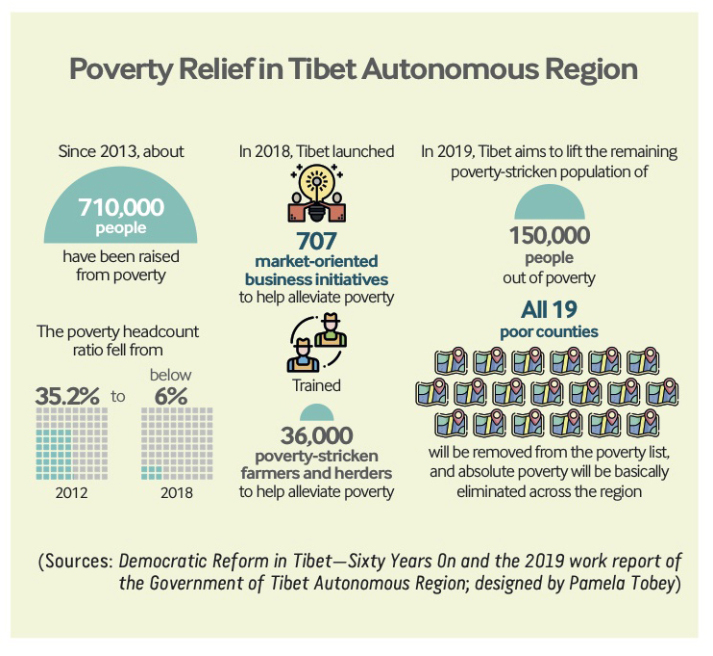From Poverty to Prosperity
Beijing Review by Li Nan ,April 15, 2019 Adjust font size:

Fruits of rural vitalization
Last year, Tibet launched over 700 business initiatives for projects including growing fruits, breeding pigs and developing tourism to alleviate poverty and trained 36,000 poverty-stricken farmers and herders.
Phuser was born into a farmer's family in Migdo Village, Qamdo City, Tibet, in 1959, the year when democratic reform in Tibet abolished theocracy and serfdom.
Before democratic reform, his family had little to eat. After 1959, thanks to rural land reform, the family of eight received 1.67 hectares of farmland. But they were still not out of the woods. "Before the 1980s, we lived in a run-down house. Passersby could see what we were doing inside. And there was no electricity or tap water," Phuser told Beijing Review.
In 1983, five years after the beginning of the country's reform and opening up, the second turning point came. Phuser got married and settled down in his wife's village. He bought a truck to transport goods and as the infrastructure of Nyingchi, the new city he had moved to, improved, Phuser's business thrived. With the money he started other businesses, including renting excavators and selling Tibetan herbs.
"Thanks to the government's preferential policies, roads and bridges were built in Tibet. Our life is getting better," Phuser said.
He is not alone. Over the past 60 years, once impoverished Tibet has developed into a region with a booming economy, a well-protected environment and social progress.
In 1993, Phuser was elected secretary of the Dengkar Village branch of the Communist Party of China, and since then has led a poverty alleviation project. The village had a weak economic base and the villagers gathered herbs and sold them for money. The farming industry had not reached an industrial scale and provided only limited income for the villagers.
Phuser began fundraising to improve the infrastructure. In 2016, the village received an investment of 650,000 yuan ($97,015), which was used to improve the soil of 40 hectares and develop commercial forests. A new fruit base was built as well with the harvest expected in five years. In addition, 1.64 million yuan ($244,138) was spent to construct 41 km of new roads.
The village, through measures such as compensation, vocational education and training, has broadened the channels for farmers and herders to increase their income. Seizing the opportunity offered by the construction of Lhasa-Nyingchi Railway, the village introduced sand factories from other parts of China, providing jobs for locals.
Phuser said the village is expected to be lifted out of poverty by the end of this year.
Poverty alleviation work in the entire autonomous region has made progress. In 2018, the region allotted 16.73 billion yuan ($2.5 billion) to support rural development and 2,100 villages and 25 counties were removed from the poverty list. The poor population was reduced by 180,000.
"This year marks the 70th anniversary of the founding of the People's Republic of China and is a key year to achieve the goal of building a moderately prosperous society in all respects," Qizhala, the regional Chairman, said. To achieve the goal in 2019, the region is combining poverty alleviation with rural vitalization, developing businesses and creating jobs. Relocation projects are expected to be completed and infrastructure construction accelerated as well as public services improved.
67c7d89f-7003-4b3c-960f-7f353a236290.png)
